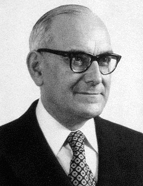

In an attempt to categorise his work by period, bearing in mind the risks that such an approach entails, we suggest the following 'macro' periods: the first, between 1920-40, mainly corresponds to the beginning of his intellectual and doctrinal formation, when he began to explore the issues related to law for which he would become known. At this time he focused on corporatism, trying to understand it and give it a unique meaning for Portuguese reality. However, some of the major issues of historical content that he would later approach, such as colonialism and issues surrounding municipalities were already evident. The second period, from 1940-68, was Marcelo Caetano's most prolific. In addition to being marking his entry into the regime’s political apparatus, noteworthy works from that period include those on the medieval period, mainly on municipal issues, studies on the courts and constitutions and treatment of colonial issues, summarised and published in 1963. The final period, 1975-80, was spent in Brazil deepening and reflecting on various topics mentioned above. Jorge Borges de Macedo made a more detailed suggestion: "the period between 1940 and 1945 included a series of works focused on administrative history across a broad chronological timeline, presented within Marcelo Caetano's working technique, such as the combining of regulatory laws and reference to the evolution of foundations, with manifest disinterest in incidents. This type of work disappeared completely after 1950, to give rise to two basic concerns: the courts and guilds, understood similarly. Beginning in 1955, his concern for the constitutional experience became predominant, including his previous studies on the courts" (p. 14).
Among the various scientific associations in which he participated were the Institute of Coimbra, the International Academy of Comparative Law (Paris), the Royal Academy of Moral Sciences and Politics (Madrid), the International Institute of Different Civilizations (Brussels), the Instituto Luso-Hispanico-Americano de Direito Internacional, and the International Institute of Administrative Sciences. He was also Director of Verbo – Enciclopédia Luso-Brasileira de Cultura, in the Juridical Sciences section, with about 86 entries. He did not participate in the Dicionário de História de Portugal, led by Joel Serrão, because the coordinator did not want to include him (Jornal de Letras, 31 January 31 1989, p. 18). In 1936, he became one of the founders of the Portuguese Academy of History (later becoming its vice-president), alongside Queirós Veloso, Reynaldo dos Santos, António Vasconcelos, Damião Peres, Paulo Merêa, Alfredo Pimenta and Carlos Malheiro Dias, among others.
